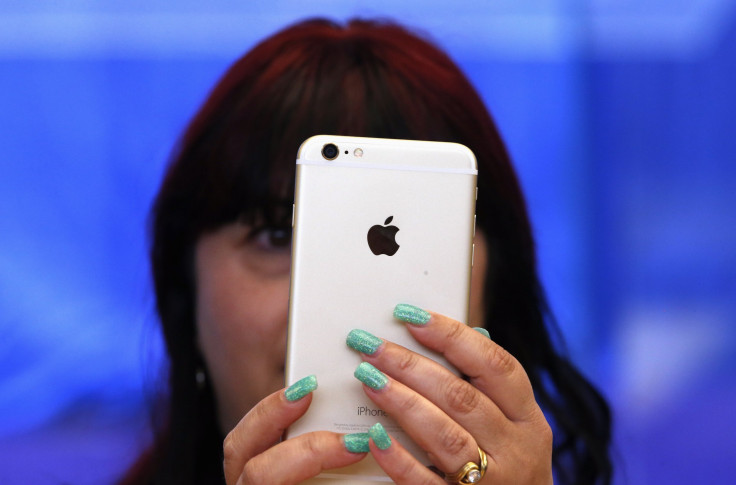Apple Stakes Its Claim As Privacy Becomes A Luxury Product

Introducing privacy, the new and improved product from Apple. With the release of a new set of iPhones and the iOS 8 operating system, Apple is trying to make privacy a key selling point in its battle with Google for users. If privacy is the new luxury, Apple is staking its territorial claim.
Apple's new iPhones and iOS come chock-full of privacy-enhancing features. The new iOS 8 has a kill switch that allows users to shut down and delete a lost phone, and Apple claims it doesn't have access to consumer data, which is now encrypted on the phone.
Apple also unveiled a new, more extensive privacy policy on Wednesday. CEO Tim Cook didn’t mince words in his open letter to customers.
“We don’t ‘monetize’ the information you store on your iPhone or in iCloud,” Cook wrote. “And we don’t read your email or your messages to get information to market to you. Our software and services are designed to make our devices better. Plain and simple.”
In an interview with Charlie Rose on PBS, Cook drew a bright line between Apple and Google in that Apple makes its money selling devices. Google, of course, makes money selling advertising, a business enabled by consumer data. In a world of "freemium" business models where users pay to be rid of ads, Apple is defining privacy as a key feature of its technology.
“Apple still has this position as premium, but I think it goes beyond the luxury-brand notion,” Future of Privacy Forum Executive Director Jules Polonetsky said. “It goes to the view that you can trust [Apple] with the most important things in your life.”
Apple is not only championing privacy as a feature but also signaling to users that they can trust Apple with their intimate data. It's an awkward time to do that, given Apple's iCloud hacking scandal in August, where about 100 celebrities found their nude photos strewn across Reddit. But it's pretty much a requirement considering that the next generation of Apple products and platforms delve into the most intimate parts of our lives, from our heartbeats to our homes.
“All of these are features that only succeed if people are very trusting that this technology is supportive in their life and not selling their data or resulting in misuse,” Polonetsky said.
While Google and Apple have different business models, the companies have similar platforms that are set to compete in the home, namely Google’s Nest and Dropcam versus Apple’s third-party HomeKit partnerships.
“They’re obviously gearing up for potentially -- whether it’s explicit or implicit -- a bit of a campaign to show that maybe you shouldn’t necessarily trust Google to handle all that sensitive information,” Deep Focus founder and CEO Ian Schafer said.
Apple isn't the first tech company to stake out privacy as a selling point. Recent versions of Microsoft's Internet Explorer browser shipped with its do-not-track setting enabled, and Microsoft spent big on political-style ads attacking Google for "Scroogling" its users by using their data.
“It’s inevitable that people are going to want more privacy, especially as they create more data,” Schafer said. “The more data we create, the more scarce privacy becomes. And anything that becomes scarce tends to increase in value.”
Apple's iPhones inhabit the high end of the smartphone market. But Android smartphones can be had at little or no cost with a mobile contract; Amazon's Fire Phone is being offered for only 99 cents. Paying for those devices is an underlying business model: For Google's Android, it's about ads; for Amazon, it's about encouraging users to buy things.
“I think Apple is just saying, ‘If you don’t want your products subsidized with advertising or if you don’t want to subsidize the products that Apple sells by compromising privacy, then we’re the choice for you.’ It’s just unsubsidized,” said Schafer.
The question is whether privacy itself is enough of a selling point for consumers.
The big question about Apple’s renewed emphasis on privacy / data sharing is whether anyone cares enough to switch. Remember Scroogled?
— Jan Dawson (@jandawson) September 18, 2014© Copyright IBTimes 2025. All rights reserved.





















